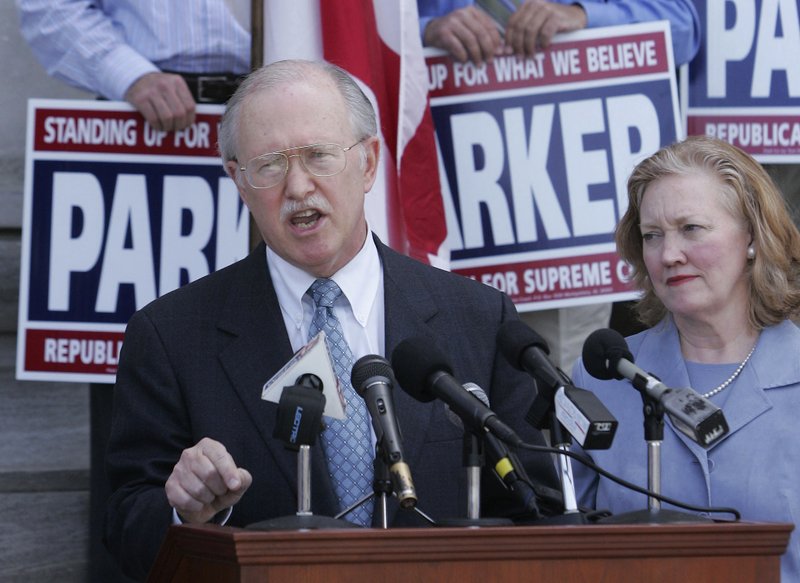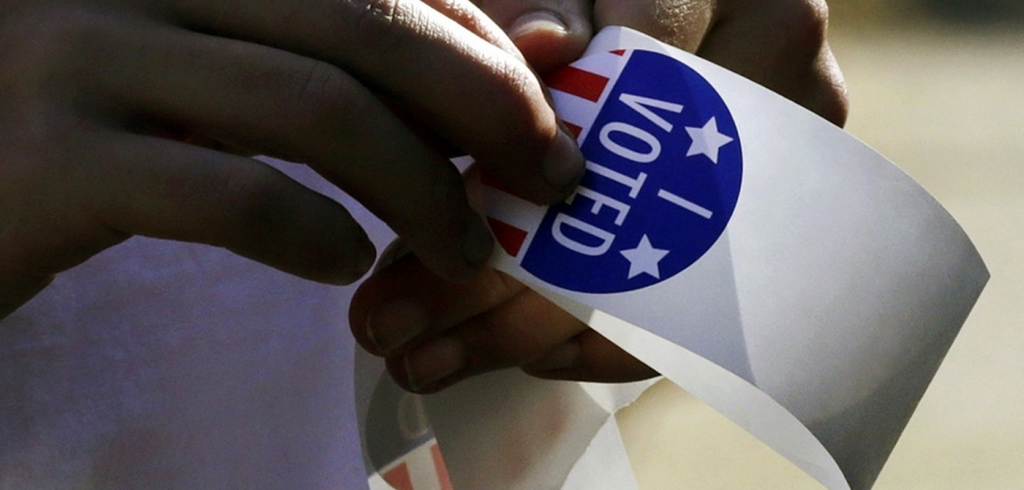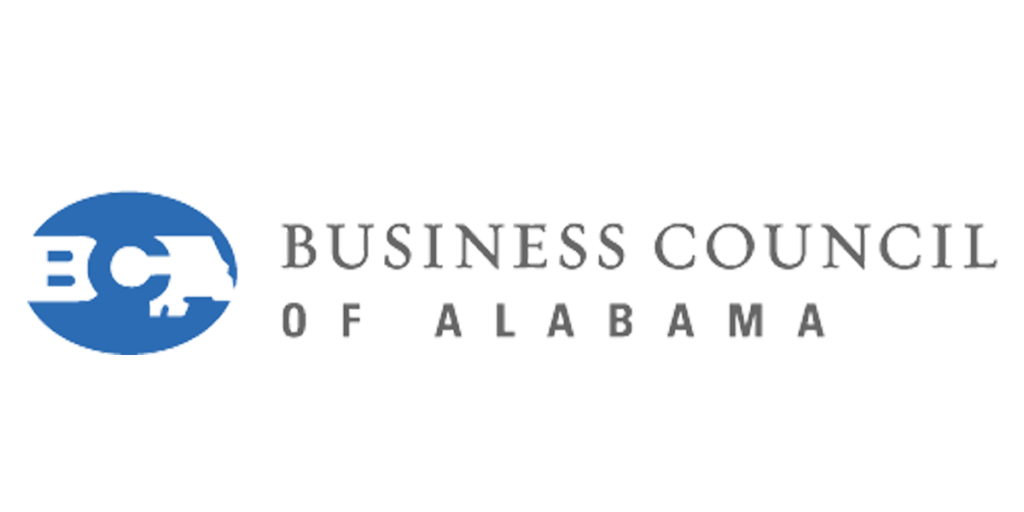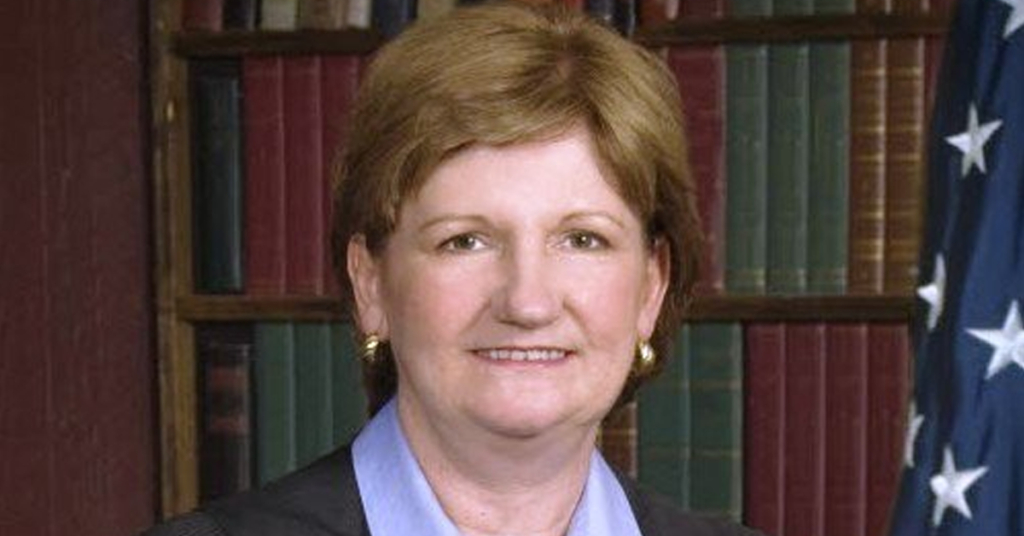Steve Flowers: Girls State has had a profound effect on current state leaders

The Alabama Boys State and Girls State programs have been the spawning ground for Alabama political leaders for generations. It is a marvelous civic contribution that the American Legion has sponsored for almost a century in our state. The prominence that Boys State has played is immense. However, Girls State may very well be eclipsing the boys in this generation, given the amazing array of women who are currently leading our state. Governor Kay Ivey was a young high school leader growing up in Wilcox County in the early 1960s. Kay was selected for Girls State and had a week there that left an indelible impression on her. She went on to Auburn, where she was a student leader. For over 40 years, Kay Ivey has come back to Girls State every year as a counselor, advisor, and speaker. She is devoted to Girls State. Dr. Cathy Johnson Randall has been one of the state’s most respected leaders for 50 years. She was the most outstanding student at the University of Alabama when I arrived in 1970. She graduated undergraduate and got her doctorate from the Capstone. In her early career years, she was an administrator at the University of Alabama. She has been a premier businesswoman and philanthropist and Tuscaloosa Civic leader in her adult life. As a teenager, Cathy was a Girls Stater, to say the least. She was elected Governor of Girls State. She then went on to Washington and was elected President of Girls Nation. Furthermore, her daughter Kate was elected Governor of Girls State like her mother, and – get this – Kate was also President of Girls Nation. Cathy’s late husband and Kate’s father, Pettus Randall, was Governor of Alabama Boys State. It is doubtful any family in America, much less Alabama, will ever match that family lineage. Cathy Randall and Kay Ivey took a young lady from Enterprise under their wings when she arrived at Girls State. That student leader was one Katie Boyd. Katie became Governor of Girls State. She then went on to the University of Alabama and pledged Cathy Randall’s sorority, Chi Omega. Katie was elected Student Government President at Alabama, then married Crimson Tide Football star, Wesley Britt. Last year Katie Boyd Britt was elected as our United States Senator at the ripe old age of 40. The list of Girls Staters that are current state leaders does not end with Governor Ivey, Senator Britt, and Dr. Randall. Supreme Court Justice Kelli Wise was a Girls Stater, as well as past Justice Lyn Stuart. Federal District Judge Anna Manasco is a Girls State alumnus from around the same era as Kelli Wise. Mary Margaret Carroll from Ozark, who is one of the state’s top lobbyists, was a Girls Stater with Katie Britt and a Chi Omega with Katie at Alabama. She was also President of the SGA at the University of Alabama. Liz Filmore, Kay Ivey’s Chief of Staff, got her start at Girls State. Many of these women have bonded through the Girls State program. Especially Kay Ivey, Cathy Randall, and Katie Britt. They are like sisters. The fourth sister in this close-knit group is Lee Sellers of Montgomery. Lee grew up in Montgomery and has lived there all of her life. She was a prominent Girls State leader as a teenager. She became Executive Director of Alabama Girls State 21 years ago. She and her husband, Supreme Court Justice Will Sellers, are some of Kay Ivey’s closest friends. Lee is the glue that keeps this band of Girls State Alumni together. Lee will more than likely bring this group of state leaders back to welcome this year’s group of teenage Girls State leaders when they arrive next week to Troy University for the 81st meeting of Alabama Girls State. There will probably be a future senator or governor in attendance. Our current governor, Kay Ivey, is the first elected female Republican governor of Alabama. She will not be the last female to be elected governor of our state. In the future, my prediction is that there will be mostly female governors and presidents in future years. It is a fact that the majority of college enrollees and graduates are female. The reason most future governors and presidents, and probably Supreme Court justices, will be women is because currently 60% of law school graduates are females, and this is expected to grow to 70% in the next decade. See You next week. Steve Flowers is Alabama’s leading political columnist. His weekly column appears in over 60 Alabama newspapers. He served 16 years in the state legislature. Steve may be reached at: www.steveflowers.us.
Five things you need to know about Tom Parker

Now that the runoff elections are over, voters are turning their attention to the November General Election only 90 days away. Associate Justice Tom Parker beat out former chief justice Lyn Stuart in the June 5 primary election with almost 52 percent of the vote. Now he moves to the General Election, facing Democratic nominee Judge Bob Vance. With that in mind, here are the five things you need to know about Tom Parker: 1. He attended some of most prestigious schools in the country, and traveled to Brazil to study. Parker attended Dartmouth College in New Hampshire, and received his J.D. from Vanderbilt University school of law in Tennessee. According to his campaign bio, he was also a Rotary International Fellowship recipient and attended the University of Sao Paulo School of Law, in Sao Paulo, Brazil, where he was the first foreign student in Brazil’s most prestigious law school. 2. He’s held numerous positions in different courts across the state Parker has most recently served as Alabama’s Associate Justice, a position he’s held since 2004; but has also held numerous positions across the state including: Deputy Administrative Director of Courts, General Counsel for the Alabama court system, Director of the Alabama Judicial College, and Legal Adviser to the Chief Justice under Roy Moore. 3. He founded the Alabama Family Alliance, now the Alabama Policy Institute The Alabama Family Alliance, now the Alabama Policy Institute, was founded by Parker in 1989; he also served as the think tanks first Executive Director. “The Alabama Policy Institute is an independent, nonpartisan, nonprofit research and educational organization dedicated to strengthening free enterprise, defending limited government, and championing strong families,” API’s mission statement reads. 4. He served as an Assistant Attorney General under Jeff Sessions and Bill Pryor. According to his bio on the Alabama Judicial System’s website, Parker served as an assistant Attorney General under both Jeff Sessions and Bill Pryor. “As an Assistant Attorney General, he handled death penalty cases, criminal appeals, and constitutional litigation,” the bio reads. “He has extensive experience in writing appellate briefs and with oral arguments before the Supreme Court and the Court of Criminal Appeals.” 5. He is a longtime friend and ally of former Alabama Chief Justice Roy Moore Parker served under Moore as a Legal Adviser, and has been described by some as “Moore- light.” “He hasn’t been directly involved in Parker’s campaign. But neither has Parker sought to put any distance between him and Moore,” the Associated Press reported. “Parker contends Moore was wrongfully suspended in 2016, after an ethics panel ruled he was urging probate judges to defy the Supreme Court’s legalization of same-sex marriage. He says Moore was treated unfairly because of his Ten Commandments fight.”
Bob Vance holds major financial lead over opponent Tom Parker

According to monthly campaign finance reports filed with the Secretary of State’s office this week, Alabama Chief Justice Democratic candidate Judge Bob Vance is holding a major financial lead over his Republican opponent Associate Justice Tom Parker. Parker beat out former chief justice Lyn Stuart in the June 5 primary election with almost 52 percent of the vote. Vance had no primary opponent. According to the campaign filings, Parker ended the month of July with $13,753 in his account, while Vance ended the month with $239,200. Over the course of the month Parker raised just $2030, to Vance’s $93,080. “I think what’s pleased me most is that our numbers come from a large number of individual contributors,” Vance told AL.com. “I think we’re over 1,600 different contributors now. And the overwhelming majority of that is individual contributions. So that’s very heartening to me and it shows we’re getting a lot of support in the campaign.” Parker claimed he was not worried about the difference in funds; “I have had a continual experience of being able to use my money conservatively in my campaigns to win against candidates who have out raised me or outspent me multiple times over,” Parker told AL.com. But according to the Associated Press, the race has undertones of a rematch. Parker, a longtime ally of former Chief Justice Roy Moore – and Vance; who’s strong showing against Moore in the 2012 race for chief justice helped inspire U.S. Sen. Doug Jones last year in his defeat of Moore for the seat vacated by Attorney General Jeff Sessions. If elected, Vance would become the only Democrat on the Alabama Supreme Court. Read the full campaign finance reports below: Tom Parker Monthly Campaign Filings – July Bob Vance Monthly Campaign Filings – July
Tom Parker, longtime Roy Moore ally seeks Alabama chief justice job

Alabama’s Roy Moore fell short in his quest to become a U.S. senator, but voters this November could install one of his longtime allies as the state’s chief justice. Associate Justice Tom Parker says in a campaign ad that he won’t “sit back while liberals destroy our law and liberty.” Like Moore, he sees Alabama’s courts as a key battleground for overturning U.S. Supreme Court decisions that legalized abortion and same-sex marriage. “President Trump is just one conservative appointment away from giving us a conservative majority on the U.S. Supreme Court and they are going to need cases that they can use to reverse some of those horrible decisions of the liberal majority from the past that have no constitutional foundation whatsoever,” Parker told The Associated Press in an interview. Parker’s rallying cries to social conservatives propelled his primary win over a rival he dismissed as too “moderate:” Chief Justice Lyn Stuart, a better-funded incumbent who had taken over chief justice duties after Moore was suspended from the bench for a second time. Now he faces Bob Vance, a county circuit judge who would become the only Democrat on the Alabama Supreme Court. The race has undertones of a rematch. It was Vance’s strong showing against Moore in the 2012 race for chief justice — he lost by just 62,000 votes with support from moderate Republicans — that helped inspire U.S. Sen. Doug Jones last year in his defeat of Moore for the seat vacated by Attorney General Jeff Sessions. After years of upheaval — no chief justice has completed the six-year term since 2001 — both Parker and Vance emphasize the need to address systemic funding and staffing shortages. Parker says he would draw on his lobbying experience to secure funding. Vance said judges are “grappling every day” with defendants plagued by addiction and mental health issues. Vance, 57, a graduate of Princeton University and the University of Virginia law school, has been elected three times since his appointment in Jefferson County in 2002. He says Moore was a “divisive” justice, and he fears more of the same if Parker takes charge. “The chief justice really should stand there for everyone, because the courts should be there for everyone,” Vance told the AP. Vance says personal ideologies have no place in the judiciary. He cites his father — federal appellate Judge Robert Smith Vance Sr., who was assassinated with a mail bomb in 1989 — who said his religious opposition to the death penalty couldn’t influence his legal decisions. “He emphasized to me that if you do your job as a judge, and do it well, you’ve got to put aside your personal beliefs sometimes and just stick with what the law tells you to do,” Vance said. Parker, 66, graduated from Dartmouth College and Vanderbilt University law school, then worked as an assistant attorney general and director of a conservative think tank tied to James Dobson’s Focus on the Family. Moore hired him as deputy administrative director of courts, and he served as Moore’s spokesman during fights over a Ten Commandments monument Moore erected in the state Supreme Court building. Those court fights ended in 2003 with Moore’s first ouster from the bench. Parker was elected as justice the next year, and Moore was re-elected chief justice in 2012. Bill Stewart, a political scientist and long-time observer of state politics, said Parker could be viewed as “Moore- light.” He hasn’t been directly involved in Parker’s campaign. But neither has Parker sought to put any distance between him and Moore. Parker contends Moore was wrongfully suspended in 2016, after an ethics panel ruled he was urging probate judges to defy the Supreme Court’s legalization of same-sex marriage. He says Moore was treated unfairly because of his Ten Commandments fight. Moore remains embroiled in defamation lawsuits over the allegations of sexual misconduct with teens decades ago that doomed his Senate race. In 2014, they were the lone voices against a 7-2 ruling denying a “birther conspiracy” effort that had sought to keep President Barack Obama’s name off Alabama’s 2012 ballot. Parker wrote that the state had “received notice sufficient to raise a duty to investigate” Obama’s qualifications. Parker says now that he wasn’t commenting on the “truth” of the accusation. But Parker is not just Moore’s judicial acolyte. He has now been on the state Supreme Court twice as long as his former boss. And while Moore was twice ousted for violating judicial ethics, Parker cites his defeat of an ethics complaint as a victory for free speech. The Southern Poverty Law Center had complained about comments Parker made on a Christian radio show criticizing the U.S. Supreme Court’s gay marriage ruling. The same group had criticized him a decade earlier for posing with rebel battle flags alongside white extremists at the funeral of a Confederate widow; Parker said at the time that he had only just met the men, and that the criticism from a group like the SPLC showed he “must be doing the right things.” The complaint about his radio comments was dismissed, but Parker kept fighting until the Judicial Inquiry Commission agreed not to enforce the rule against off-the-bench comments unless they impact the fairness of impending proceedings. A Parker campaign ad says he’s “unafraid to stand up to bullies like the SPLC in defense of our Judeo-Christian heritage.” He told the AP that the victory allows judges to speak their minds and voters to learn the positions of “the judicial candidates that they are voting on.” Republished with the permission of the Associated Press.
More Democrats on Alabama ballot for Tuesday elections than in previous years

Alabama’s primary ballot features multiple offices and something voters in the Republican-controlled state haven’t seen in years: Democratic races for statewide and congressional positions. Alabama Democrats have 27 total candidates running for state positions or Congress this year, more than double the 13 from 2014. That means there are several Democratic primary races, compared to just one for a statewide office four years ago. Many of the eventual Republican nominees will still run unopposed in the General Election because no Democrats qualified. But with Democratic opposition to President Donald Trump running high and after Democrat Doug Jones’ victory in Alabama’s U.S. Senate in December, the once-powerful party is trying to show signs of life. Aside from the governor’s campaign, in which five Republicans and six Democrats are vying for their party’s nominations, here are some other races to watch: ___ Attorney General Republican appointee Steve Marshall is facing voters for the first time in a statewide race as he seeks election to the office of attorney general, and it might not be easy. Marshall, a former Marshall County district attorney, has served in the job since February 2017, when then-Gov. Robert Bentley tapped him after naming Luther Strange to the U.S. Senate. Marshall is being opposed in the GOP primary by Alice Martin, a former federal prosecutor who was the state’s chief deputy attorney general; Troy King, a former state attorney general and Birmingham lawyer Chess Bedsole. Birmingham attorneys Joseph Siegelman and Chris Christie are vying for the Democratic nomination. Siegelman is the son of former Gov. Don Siegelman. The attorney general is responsible for representing the state in criminal and civil matters, and the office often is a stepping-stone to other positions. Just ask U.S. Attorney General Jeff Sessions, a former Alabama attorney general. ___ Congress Rep. Martha Roby’s bid to hold on to her District 2 seat from the Wiregrass region of southeastern Alabama for a fifth term highlights the state’s congressional primaries. The House Appropriations Committee member is being opposed by candidates including Bobby Bright, who Roby defeated to claim the seat in 2010. Other opponents include Rich Hobson of Enterprise, who managed Roy Moore’s unsuccessful Senate campaign last year. Roby gained Republican critics after distancing herself from Donald Trump’s vulgar comments about women during his presidential campaign in 2016. The eventual GOP nominee will face either education researcher Tabitha Isner of Montgomery or activist and military veteran Audri Scott Williams of Cottonwood. They’re competing for the Democratic nomination in the Republican-dominated district. Reps. Mo Brooks of Huntsville and Robert Aderholt of Haleyville also have challengers in the GOP primary, and Democrats have primaries in four districts in all. There was just one Democratic congressional primary in 2014. ___ Lieutenant Governor Alabama has been without a lieutenant governor for more than a year, and the primary is a first step toward filling the office. Alabama Public Service Commission president Twinkle Andress Cavanaugh is running in the Republican primary against two state legislators: Rep. Will Ainsworth of Guntersville and Sen. Rusty Glover of Mobile. Cavanaugh has outpaced other candidates in fundraising with nearly $1.1 million in total contributions through April. The eventual Republican nominee will face Democratic minister Will Boyd, who lost the U.S. Senate primary against Doug Jones in the special election last year. The office of lieutenant governor, who is president in the state Senate, has been vacant since April 2017, when Kay Ivey succeeded Robert Bentley as governor following his resignation and guilty plea amid a sex-tinged scandal. Ethics is a top issue in the race as the Legislature looks to review Alabama’s ethics law next year and lawmakers currently face corruption charges. ___ Supreme Court The Alabama Supreme Court isn’t in the news as often as it used to be without Roy Moore as chief justice, but the primary ballot includes three contested races on the nine-member, all-Republican panel. Current court members Lyn Stuart and Tom Parker are vying for the Republican nomination for chief justice. Stuart has been serving in the position since Moore’s suspension for violating judicial ethics and later resignation to run for the Senate. Either Stuart or Parker will face Bob Vance Jr., a Jefferson County circuit judge who is unopposed for the Democratic nomination. Court appointee Brad Mendheim is opposed by circuit judges Debra Jones of Anniston and Sarah Hicks Stewart of Mobile for the GOP nomination for Place 1 on the nine-member court. And attorneys John Bahakel and Jay Mitchell of Birmingham are both seeking the Republican nomination for the Place 4 seat. The winner will face Democrat Donna Wesson Smalley in November. ___ State School Board Republicans are fighting over two seats on the Alabama State Board of Education, and the winners of both races will have Democratic opponents in the fall. Four Republicans are running for the District 2 seat held by Betty Peters, who isn’t seeking re-election. They include former Dothan school board member Melanie Hill; Coffee County resident Sybil Little; John Taylor of Dothan; and Auburn City School Board President Tracie West. The winner will face Democrat Adam Jortner in November. Business executive and former Madison school board Rich McAdams and Wayne Reynolds, a retired educator and registered nurse from Athens, are seeking the Republican nomination in District 8. The seat is now held by Mary Scott Hunter, who is running for the Alabama Senate. Jessica Fortune Barker is on the ballot as a Democrat in the General Election. Republished with the permission of the Associated Press.
Who’s who in statewide and congressional races on the primary ballot

Alabama’s primary ballot features multiple offices and something voters in the Republican-controlled state haven’t seen in years: Democratic races for statewide and congressional positions. Alabama Democrats have 27 total candidates running for state positions or Congress this year, more than double the 13 from 2014. That means there are several Democratic primary races, compared to just one for a statewide office four years ago. Many of the eventual Republican nominees will still run unopposed in the General Election because no Democrats qualified. But with Democratic opposition to President Donald Trump running high and after Democrat Doug Jones’ victory in Alabama’s U.S. Senate in December, the once-powerful party is trying to show signs of life. Aside from the governor’s campaign, in which five Republicans and six Democrats are vying for their party’s nominations, here are some other races to watch: ___ Attorney General Republican appointee Steve Marshall is facing voters for the first time in a statewide race as he seeks election to the office of attorney general, and it might not be easy. Marshall, a former Marshall County district attorney, has served in the job since February 2017, when then-Gov. Robert Bentley tapped him after naming Luther Strange to the U.S. Senate. Marshall is being opposed in the GOP primary by Alice Martin, a former federal prosecutor who was the state’s chief deputy attorney general; Troy King, a former state attorney general and Birmingham lawyer Chess Bedsole. Birmingham attorneys Joseph Siegelman and Chris Christie are vying for the Democratic nomination. Siegelman is the son of former Gov. Don Siegelman. The attorney general is responsible for representing the state in criminal and civil matters, and the office often is a stepping-stone to other positions. Just ask U.S. Attorney General Jeff Sessions, a former Alabama attorney general. ___ Congress Rep. Martha Roby’s bid to hold on to her District 2 seat from the Wiregrass region of southeastern Alabama for a fifth term highlights the state’s congressional primaries. The House Appropriations Committee member is being opposed by candidates including Bobby Bright, who Roby defeated to claim the seat in 2010. Other opponents include Rich Hobson of Enterprise, who managed Roy Moore’s unsuccessful Senate campaign last year. Roby gained Republican critics after distancing herself from Presidential Donald Trump’s vulgar comments about women in 2016. The eventual GOP nominee will face either education researcher Tabitha Isner of Montgomery or activist and military veteran Audri Scott Williams of Cottonwood. They’re competing for the Democratic nomination in the Republican-dominated district. Reps. Mo Brooks of Huntsville and Robert Aderholt of Haleyville also have challengers in the GOP primary, and Democrats have primaries in four districts in all. There was just one Democratic congressional primary in 2014. ___ Lieutenant Governor Alabama has been without a lieutenant governor for more than a year, and the primary is a first step toward filling the office. Alabama Public Service Commission president Twinkle Andress Cavanaugh is running in the Republican primary against two state legislators: Rep. Will Ainsworth of Guntersville and Sen. Rusty Glover of Mobile. Cavanaugh has outpaced other candidates in fundraising with nearly $1.1 million in total contributions through April. The eventual Republican nominee will face Democratic minister Will Boyd, who lost the U.S. Senate primary against Doug Jones in the special election last year. The office of lieutenant governor, who is president in the state Senate, has been vacant since April 2017, when Kay Ivey succeeded Robert Bentley as governor following his resignation and guilty plea amid a sex-tinged scandal. Ethics is a top issue in the race as the Legislature looks to review Alabama’s ethics law next year and lawmakers currently face corruption charges. ___ Supreme Court The Alabama Supreme Court isn’t in the news as often as it used to be without Roy Moore as chief justice, but the primary ballot includes three contested races on the nine-member, all-Republican panel. Current court members Lyn Stuart and Tom Parker are vying for the Republican nomination for chief justice. Stuart has been serving in the position since Moore’s suspension for violating judicial ethics and later resignation to run for the Senate. Either Stuart or Parker will face Bob Vance Jr., a Jefferson County circuit judge who is unopposed for the Democratic nomination. Court appointee Brad Mendheim is opposed by circuit judges Debra Jones of Anniston and Sarah Hicks Stewart of Mobile for the GOP nomination for Place 1 on the nine-member court. And attorneys John Bahakel and Jay Mitchell of Birmingham are both seeking the Republican nomination for the Place 4 seat. The winner will face Democrat Donna Wesson Smalley in November. ___ State School Board Republicans are fighting over two seats on the Alabama State Board of Education, and the winners of both races will have Democratic opponents in the fall. Four Republicans are running for the District 2 seat held by Betty Peters, who isn’t seeking re-election. They include former Dothan school board member Melanie Hill; Coffee County resident Sybil Little; John Taylor of Dothan; and Auburn City School Board President Tracie West. The winner will face Democrat Adam Jortner in November. Business executive and former Madison school board Rich McAdams and Wayne Reynolds, a retired educator and registered nurse from Athens, are seeking the Republican nomination in District 8. The seat is now held by Mary Scott Hunter, who is running for the Alabama Senate. Jessica Fortune Barker is on the ballot as a Democrat in the General Election. Republished with the permission of the Associated Press.
Chief Justice Lyn Stuart picks up major endorsements in primary

Six current and former Alabama Supreme Court justices have endorsed Alabama Chief Justice Lyn Stuart in a Republican primary. The current and former justices on Thursday announced their support for Stuart who faces Associate Justice Tom Parker in the June 5 GOP primary for chief justice. Justice Mike Bolin, Justice Jim Main, retired Justice Gorman Houston, retired Justice Patti Smith, retired Justice Champ Lyons, and retired Justice Bernard Harwood said they were supporting Stuart. The GOP primary pits Parker, a longtime ally of former Alabama Chief Justice Roy Moore, against Stuart, who took over Moore’s duties when Moore was suspended from the bench. Alabama Gov. Kay Ivey later appointed Stuart as Moore’s replacement. The winner of the GOP primary will face Democrat Bob Vance in November. Reprinted with permission of the Associated Press.
Layoffs create delays in Mobile County Circuit Court, judge blames Lyn Stuart

Presiding Mobile County Circuit Court judge John Lockett says Alabama Supreme Court Chief Justice Lyn Stuart is to blame for the layoffs and court closures that will result in delays to cases, including: civil cases, criminal cases, protection from abuse petitions, child support and custody matters. Lockett told WALA that 14 to 16 employees in judge’s offices and court administration will be laid off by the end of September, resulting in the reduction of jury weeks from 31 to 24, and the amount of phone calls the court will take in. Additionally, starting on June 1, no one at the court will take phone calls until after 2:30 p.m., and the court will close from noon to 1 p.m. Lockett and Circuit Court Clerk JoJo Schwarzauer say Stuart is to blame for not allocating funds to the personnel shortages in the circuit. In a joint notice, given to members of the Mobile Bar Association, Schwarzauer and Lockett say, “despite the State Trial Court Budget receiving $2.5 million more than initially requested by the Chief Justice, we have been informed that none of this amount will be allocated to address the personnel shortages in our circuit.” “Because we no longer have sufficient personnel to conduct our normal operations in a normal fashion, we are making some necessary changes to help the remaining clerks, the judges and judicial support staff process the thousands of filings made daily,” the release said, according to AL.com. Lockett said the court has 19 fewer people than it needs, but Randy Helms, Administrative Office of the Courts Director paints a different picture. Helms says Lockett is getting his numbers from a survey done on court resources by the National Center for State Courts, but the survey shows deficiencies in other counties as well, some worse than Mobile’s. “We have a system that is already bordering on collapse. I think we’re looking at a potential collapse with huge backlogs and not being able to do the people’s business simply because we don’t have the personnel to do it,” Lockett told WALA.
Here’s everyone who the BCA has endorsed in the 2018 election cycle

The Business Council of Alabama (BCA), considers itself Alabama’s foremost voice for business. It is a non-partisan, statewide, business association representing the interests and concerns of nearly 1 million working Alabamians. The BCA works with the Alabama Legislature to promote “pro-business” reforms such as: Tax credits for small business Job creation Incentives for economic development Ethics reform Positive changes in our public education system Here are the candidates who the BCA has endorsed, who they believe will bring the best changes and initiatives for Alabama’s businesses: Statewide Races: Governor: Kay Ivey Lieutenant Governor: Twinkle Cavanaugh Attorney General: Steve Marshall Secretary of State: John Merrill State Treasurer: John McMillan Commissioner of Agriculture and Industries: Rick Pate Judicial Races: Chief Justice: Lyn Stuart Associate Justice Place 1: Sarah Stewart and Brad Mendheim Associate Justice Place 2: Tommy Bryan Associate Justice Place 3: Will Sellers Associate Justice Place 4: Jay Mitchell Court Of Civil Appeals Place 1: Christy Edwards Court Of Civil Appeals Place 2: Judge Terri Thomas Court Of Civil Appeals Place 3: Judge Terry Moore Court Of Criminal Appeals Place 1: Richard Minor Court Of Criminal Appeals Place 2: Chris McCool Court Of Criminal Appeals Place 3: Judge Bill Cole State Senate Races Senate District 2: Tom Butler Senate District 3: Arthur Orr Senate District 5: Greg Reed Senate District 7: Mary Scott Hunter Senate District 12: Del Marsh Senate District 13: Randy Price Senate District 14: Cam Ward Senate District 16: Jabo Waggoner Senate District 17: Shay Shelnutt Senate District 18: Rodger Smitherman Senate District 32: Chirs Elliott State House Races House District 3: Humphrey Lee House District 6: Andy Whitt House District 8: Terri Collins House District 9: Scott Stadthagen House District 13: Connie Rowe House District 14: Richard “Bull” Corry House District 27: Wes Kitchens House District 30: Craig Lipscomb House District 36: Randy Wood House District 39: TJ Maloney House District 40: K.L. Brown House District 41: Corley Ellis House District 42: Jimmy Martin House District 43: Arnold Mooney House District 44: Danny Garrett House District 45: Dickie Drake House District 46: David Faulkner House District 47: David Wheeler House District 48: Jim Carns House District 49: April Weaver House District 50: Jim Hill House District 55: Rod Scott House District 73: Matt Fridy House District 87: Jeff Sorrells House District 88: Jeremy Arthur House District 89: Marcus Paramore House District 96: Matt Simpson House District 102: Willie Gray
Steve Flowers: Supreme Court races on ballot this year

Among the plethora of races on the ballot this year are the important seats on the Alabama Supreme Court. We have an unprecedented five out of nine seats up for election. Our Alabama Supreme Court as well as our Courts of Criminal Appeals are extremely conservative, pro-business and all Republican. This conservatism dates back to the 1980’s and 1990’s. During that two-decade run, the plaintiff lawyers controlled and dominated our State Supreme Court. We were known throughout the country as a Plaintiff’s paradise. It was like a fairytale jackpot justice system. It was not uncommon for ludicrous multimillion dollar verdicts to be upheld daily for all types of cases. We were called Tort Hell by “Time Magazine.” Tort reform became the dominant issue in the Halls of the Legislature. When you have unbridled monetary verdicts coming out of Alabama that gives a plaintiff millions of dollars for having a wreck in a General Motors vehicle, it affects the entire country. General Motors does business in all 50 states. Well the business community throughout the country and in Alabama decided enough was enough. They decided to close down tort hell. They put their money where their mouth was and replaced an all Democratic plaintiff trial lawyer Supreme Court with an all Republican pro-business court. The pendulum has swung completely from left to right. If yesterday’s court was extremely liberal, today’s Alabama Supreme Court is extremely conservative. These five open seats will be held by conservative Republicans when the dust settles at the end of the year and they begin their six-year terms. It is just a matter of which Republican presides and decides the major cases that affect Alabamians. Will Sellers, a very well respected Montgomery attorney, was appointed by Governor Kay Ivey last year to Place 3 on the high court. Justice Sellers is running without opposition and will have a full six-year term. Popular Justice, Tommy Bryan, also has no opposition and will return for another six-years on the high tribunal. Justice Jim Main who has had a distinguished career as a private lawyer, finance director and Supreme Court Justice, cannot run for reelection due to an antiquated law that disallows judges to run for reelection after they turn 70. Main’s Place 2 is being sought by Jefferson County’s John Bahakel and Jay Mitchell, also of Birmingham. Circuit Judge, Debra Jones of Calhoun County has been a judge for a decade and has run a get acquainted race for the court. She will be formidable. This place was held by Justice Glen Murdock who is originally from the Wiregrass. Murdock retired a few months ago and Governor Kay Ivey did a good day’s work when she appointed another Wiregrass native, Brad Mendheim to replace him. Mendheim has served a decade as a Circuit Judge in Dothan. He is very well respected in his hometown. He is seeking a full term. Sarah Stewart of Mobile is also in the race and should benefit from being from the vote rich Mobile-Baldwin area. The battle royale will be for the Chief Justice post. The Chief Justice not only presides over the nine member Supreme Court but also oversees the entire Court System. Justice Lyn Stuart currently presides as Chief Justice. She is running for a full 6-year reign. When the business community orchestrated the takeover of the Court, they brought in the vaunted Karl Rove to mastermind the plan. When he departed, victoriously, he left with this admonition, “The best candidate that you can put forward is a female Republican who has some experience as a Circuit Judge.” Alabamians prefer females on the Bench. If you have a race for Judge in Alabama and you have two names on the ballot, one Sue Smith and one Sam Smith and neither spends any money on campaigns and neither is known, Sue Smith will win. Lyn Stuart epitomizes this scenario perfectly. She became a respected Circuit Judge in Baldwin County at a very young age. She was elected to the Supreme Court over a decade ago and is the longest serving member of the Court. She will be pitted against another sitting member of the Court, Justice Tom Parker. He has excellent polling numbers. He was Roy Moore’s closest ally on the Court. Stuart is the sweetheart of the Business Council. Parker is the darling of the social conservatives. The race for Chief Justice will be one of the premier contests this year. See you next week. ••• Steve Flowers is Alabama’s leading political columnist. His weekly column appears in over 60 Alabama newspapers. He served 16 years in the state legislature. She may be reached at www.steveflowers.us.
Alabama Juvenile Justice Task Force releases policy recommendations

The Alabama Juvenile Justice Task Force — a group formed in June tasked with performing a comprehensive, data-driven review of Alabama’s juvenile justice system and coming to consensus on policy recommendations that protect public safety, hold youth accountable, control costs, and improve outcomes for youth, families and communities — on Monday delivered a set of policy recommendations to Governor Kay Ivey and other state leaders. The recommendations are expected to form the foundation for statutory and budgetary changes that will be considered in the 2018 legislative session. “At its first meeting, I asked the Task Force to examine our state’s data, gather input from Alabamians, and work together to develop a set of recommendations to make our communities safer and put youth back on the right track,” Ivey said. “These recommendations propose steps for reaching those important goals.” Since its formation, the Task Force met six times to examine Alabama’s juvenile justice system data, review input from hundreds of roundtable participants, and assess national research on effective ways to hold youth accountable while reducing their chances of reoffending. The group learned from states such as Georgia that have successfully expanded evidence-based services and improved public safety while diverting youth who commit lower-level offenses from deeper involvement in the criminal-justice system. “The Task Force worked diligently to fulfill our charge to find solutions that improve outcomes for our communities and for our youth,” said Task Force member, Alabama Chief Justice Lyn Stuart. “Our recommendations will strengthen the juvenile justice system by increasing the range of effective community-based options available to judges and juvenile probation officers across the state while focusing judicial resources on the most serious threats to public safety.” The 20-member Task Force included state leaders from both parties and all three branches of state government representing a wide range of groups, including legislators, judges, district attorney, sheriff, educators, and others. The Task Force conducted months of data analysis, stakeholder outreach, and policy assessment before approving recommendations to: Keep youth who commit lower-level offenses from unnecessary involvement in the juvenile justice system through early interventions and swift, consistent responses; Protect public safety and more effectively allocate taxpayer dollars by focusing system resources on youth who pose the greatest risk to public safety; and Improve public safety outcomes through increased system accountability and reinvestment into evidence-based programs in local communities. House Speaker Mac McCutcheon said, “These data-driven recommendations provide an opportunity to align our system with effective practices and with the values we share as Alabamians. That means less crime, lower costs for taxpayers, and better outcomes for Alabama’s youth and families.” The Task Force based its recommendations on the following key findings: Youth who commit lower-level offenses make up the majority of the juvenile justice population, and two-thirds of youth in the custody of the Department of Youth Services (DYS) are committed for non-felonies; Judges and probation officers lack access to evidence-based services to hold youth accountable and strengthen families in their own communities; and Out-of-home beds cost taxpayers as much as $161,694 per youth per year despite research showing poor public-safety returns, especially for youth who commit lower-level offenses. If adopted and implemented, the Task Force’s recommendations are projected to reduce the state’s out-of-home population of youthful offenders by 50 percent from projected levels by 2023, freeing more than $43 million in funds for reinvestment over five years. “We know there are proven ways to change Alabama’s juvenile justice system for the better,” said State Senator Cam Ward, who co-chaired the Task Force. “Together we can create a better juvenile justice system that shifts young people away from criminal behavior so that they do not move into the adult corrections system.” Representative Jim Hill, a retired judge who chairs the House Judiciary Committee and is a member of the Task Force, said, ” I know that Alabama’s juvenile justice system needs to be focused on public safety as well as working to ensure the best outcome for the individual juvenile. Locally operated programs that allow juvenile probation officers and other professionals access to the juvenile and the family often provide the best opportunity for this. I look forward to working to make many of the task force recommendations a reality for the children of Alabama.” The Task Force membership includes: Senator Cam Ward, 14th District (co-chair) Representative Jim Hill, 50th District (co-chair) Judge Bob Bailey, 15th Judicial Circuit Daryl Bailey, District Attorney, Montgomery County Lynn Beshear, Commissioner, Department of Mental Health Gar Blume, Defense Attorney, Blume & Blume Attorneys at Law, PC William Califf, designee of Senate President Pro Tempore Del Marsh Derrick Cunningham, Sheriff, Montgomery County Christy Cain deGraffenried, Executive Director, Alabama Children First Representative Matt Fridy, 73rd District Senator Vivian Figures, 33rd District Judge Adrian Johnson, 2nd Judicial Circuit Steven Lafreniere, Executive Director, Department of Youth Services Jim Loop, Deputy Director, Department of Human Resources Cary McMillan, Director, Family Court Division, Administrative Office of Courts Judge David Money, Henry County Commissioner, designee of Association of County Commissions of Alabama Chief Justice Lyn Stuart, Alabama Supreme Court Dr. Kay Atchinson Warfield, Education Administrator, Alabama State Department of Education Andrew Westcott, designee of House Speaker Mac McCutcheon Dave White, designee of Governor Kay Ivey The Pew Charitable Trusts and the Crime and Justice Institute at Community Resources for Justice provided technical assistance to the Task Force at the invitation of Alabama leadership.
Chief Justice Lyn Stuart announces candidacy, seeking full term

Lyn Stuart on Tuesday announced she will seek a full term as Alabama’s Chief Justice. Stuart was appointed by Gov. Kay Ivey in April following the resignation of former chief justice, and current U.S. Senate candidate, Roy Moore. She is the first female Republican Chief Justice in the history of the State of Alabama. “I am proud to announce my campaign for Chief Justice because we need to continue making Alabama a place where justice is served and the law is evenly applied to all parties,” Stuart said in a news release. “We need a judicial system where our justices follow the law, not make the law. And we need justices who strictly interpret the constitution. I’m proud of my record of doing just that and I look forward to speaking with the voters to get that message out there over the coming months.” Stuart has been elected to the Alabama Supreme Court three times — in 2000, 2006 and 2012. Prior to that she was elected a District Judge in 1988 and again in 1994. In 1997 she was appointed a Circuit Court Judge and was elected to the position in 1998. A native of Atmore, Ala. Stuart received a Bachelor of Arts degree from Auburn University with high honor in 1977 and her Juris Doctorate degree from the University of Alabama in 1980. Her legal career includes stints as an Assistant State Attorney General, Special Assistant Attorney General for the State Department of Corrections, and as an Assistant District Attorney for Baldwin County. “Securing adequate financial resources for our courts is a primary responsibility of the Chief Justice. State government is experiencing tough financial times,” Stuart continued. “Everyone in our court system is having to do more with less. It’s important to have someone with my background, experience and work ethic, someone who will work hard every day to keep our courts fair and running smoothly. That’s what I’ve been doing for 29 years and, if elected, that’s what I intend to keep doing.“


